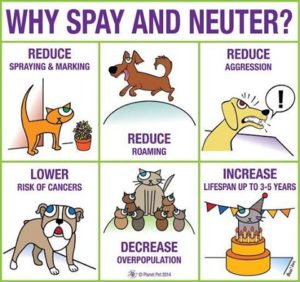Heat stroke is caused by a drastic increase in body temperature, usually from periods of exercise in the sun. Sadly, most dogs do not know when to stop and will keep chasing balls despite becoming over-heated. Guinea pigs and rabbits also need to be kept cool, in a shaded area of your garden or house. If in direct sunlight they struggle to lose heat and can quickly succumb to heat stroke.
Ticker trouble – is my pet affected?
Heart disease can develop in both cats and dogs. Some pets are born with heart defects and others develop over time and age. With around 1 in 7 cats of all ages affected, it is important to know the signs to watch out for. If you are concerned your pet is showing signs of heart disease, please do not delay come and see us for a check up.
We understand that neutering your pet is a family decision and the thought of surgery can cause some concerns with owners so we’ve included some of the top reasons to neuter your pets, this summer. The benefits can be applied to most species from cats and dogs to rabbits too! Besides the obvious – pregnancy, did you know neutering your pet can dramatically reduce the risks of some cancers? If you want to know more about neutering or arrange this for your pet, don’t hesitate to contact our friendly team today!




